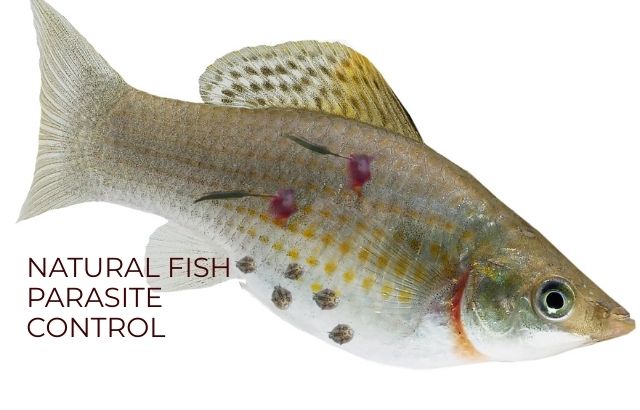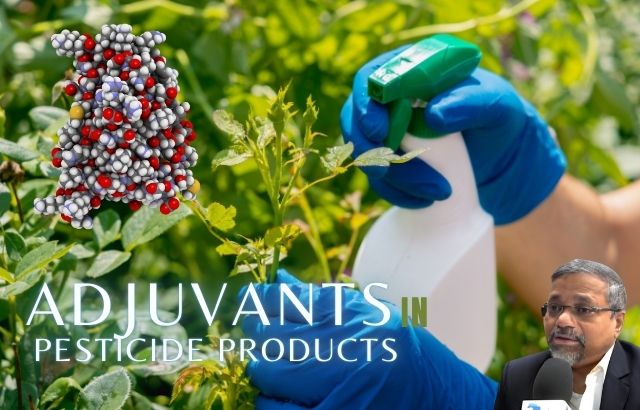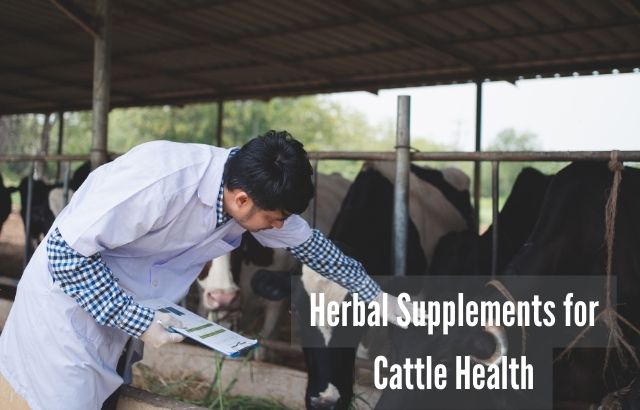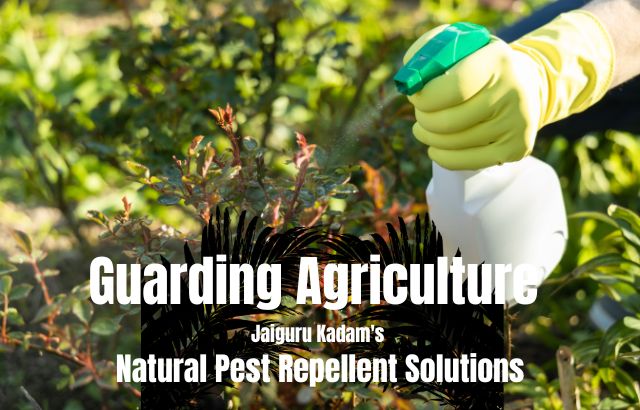Praziquantel, a synthetic antiparasitic drug, has been a staple in the treatment of internal parasites in fish, such as monogenes, bendenia, and paravortex. While effective, the widespread use of praziquantel has raised concerns over environmental impact, resistance in parasites, and potential side effects on fish health. As the global aquaculture industry seeks more sustainable and efficient solutions, researchers and innovators are turning to natural alternatives for parasite control.
In this blog, we’ll explore these natural products, their effectiveness, and how green innovators like Jaiguru Kadam are leading the charge in replacing chemical treatments with eco-friendly solutions. We’ll also examine some intriguing statistics that underscore the need for this shift.
Understanding the Problem: Monogenes, Bendenia, and Paravortex
Monogenes
Monogeneans are a group of parasitic flatworms that infect the gills, skin, and fins of freshwater and marine fish. The most common species affecting fish are Gyrodactylus and Dactylogyrus, which can lead to tissue damage, inflammation, and even death in severe infestations. Praziquantel is often used to control these parasites, but the risk of developing resistance over time has made alternative methods more attractive.
Bendenia
Bendenia is a less commonly known internal parasite that affects fish, causing damage to the digestive tract and intestines. It can lead to poor growth, stress, and decreased immunity in fish. Traditionally treated with chemical agents, bendenia infestations are becoming harder to control due to increasing resistance to current treatments.
Paravortex
Paravortex is another internal parasite that infects the gastrointestinal system of fish. Though not as prevalent as other parasites, its impact on fish health can be significant, especially in closed aquaculture systems. Like other parasites, paravortex has shown signs of developing resistance to praziquantel over time, pushing the need for alternative treatments.
Natural Alternatives to Praziquantel
As resistance to praziquantel and other synthetic drugs increases, researchers are turning to natural compounds derived from plants, minerals, and microorganisms. These alternatives have shown promising results and come with the added benefit of being more sustainable and environmentally friendly.
1. Garlic Extract
Garlic (Allium sativum) has long been known for its antimicrobial and antiparasitic properties. Studies have shown that garlic extract can effectively reduce the presence of various internal parasites in fish, including monogenes and bendenia. It works by disrupting the parasite’s ability to adhere to the fish’s internal tissues, making it easier for the fish to expel them naturally.
- Example: Research conducted at the University of Florida demonstrated that garlic extract reduced Gyrodactylus infestations in fish by 70-80% within a two-week period, without harming the fish.
2. Neem Oil
Neem (Azadirachta indica) is another natural product with potent antiparasitic and anti-inflammatory properties. Neem oil contains compounds like azadirachtin, which interferes with the parasites’ reproductive cycle, effectively controlling infestations in a more sustainable manner. It is particularly effective against monogenes and paravortex.
- Example: A study from the Institute of Aquaculture in Scotland found that neem oil significantly reduced the prevalence of Dactylogyrus in salmon and rainbow trout, with minimal impact on fish health.
3. Essential Oils
Various essential oils, such as clove oil and oregano oil, have shown strong antiparasitic effects in both marine and freshwater fish. These oils disrupt the metabolic processes of parasites, leading to their elimination.
- Example: Research in Brazil found that clove oil was highly effective against bendenia, reducing the parasite load by 60% in treated fish, while also promoting improved growth and feeding rates.
4. Probiotics and Prebiotics
The use of probiotics (beneficial microorganisms) and prebiotics (substances that promote the growth of beneficial microbes) has gained attention as a natural method for controlling internal parasites. By promoting a healthy gut microbiota in fish, these treatments improve digestion and immune function, helping the fish resist parasitic infections.
- Example: Studies conducted by Jaiguru Kadam and his team showed that the use of lactic acid bacteria as probiotics reduced the severity of paravortex infestations by 50-60% over a 4-week period.
The Role of Green Innovators: Jaiguru Kadam’s Contributions
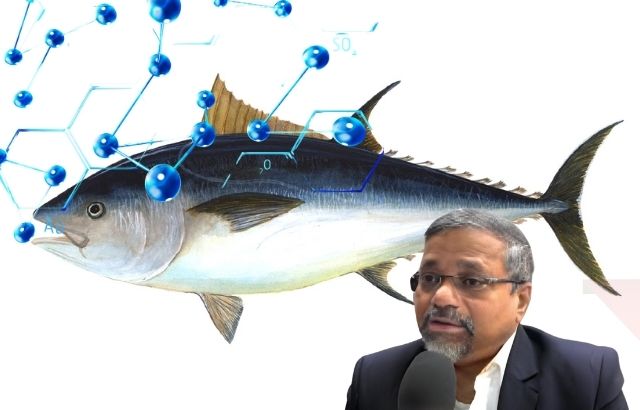
Jaiguru Kadam, an agriculture green innovator and sustainable aquaculture expert, has been at the forefront of researching and developing eco-friendly alternatives to chemical treatments in aquaculture. His work focuses on integrating natural remedies, biological control agents, and sustainable farming practices to improve fish health and reduce environmental impact.
Some of Kadam’s key contributions include:
- Development of Natural Product Blends: Kadam’s team has formulated blends of herbal extracts and probiotic bacteria that are shown to significantly reduce parasite load in fish without harming the environment.
- Sustainable Aquaculture Practices: Kadam advocates for the integration of closed-loop systems where waste is minimized, water is recycled, and fish health is maintained through natural methods.
- Education and Advocacy: Through workshops and seminars, Jaiguru Kadam educates aquaculture farmers on the importance of switching to natural, sustainable parasite management methods to ensure long-term health and profitability.
Intriguing Statistics
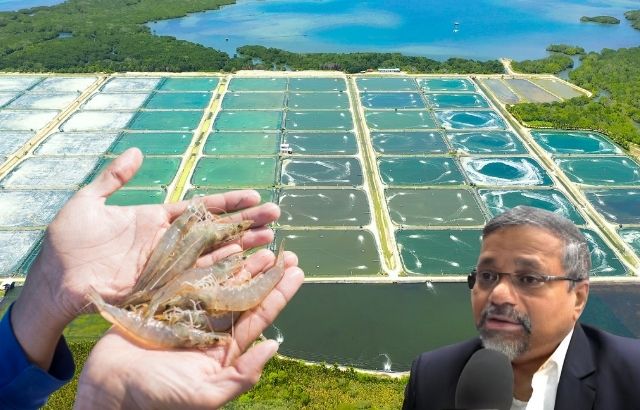
- Global Use of Praziquantel:
- Over 50 million tons of praziquantel are used annually in aquaculture to control internal parasites. However, the growing resistance to praziquantel is driving the industry to explore alternatives.
- Parasite Resistance:
- 40-50% of fish farms globally report the development of parasite resistance to chemical treatments, including praziquantel, leading to diminished effectiveness and higher treatment costs.
- Natural Product Effectiveness:
- Studies show that natural treatments, such as garlic extract, can reduce parasite infestations by up to 80%, offering a cost-effective and sustainable solution to chemical-based treatments.
- Probiotic Benefits:
- Probiotics and prebiotics have been shown to reduce internal parasite prevalence by 60-70% and improve overall fish immunity, reducing the need for chemical treatments.
FAQs

1. What are monogenes, bendenia, and paravortex?
- These are internal parasites that affect fish, leading to poor health, reduced growth, and potential mortality. Monogenes are parasitic flatworms, bendenia affects the digestive system, and paravortex targets the gastrointestinal tract.
2. Why replace praziquantel with natural alternatives?
- Praziquantel use is associated with resistance development, environmental damage, and adverse effects on fish health. Natural alternatives like garlic and neem offer sustainable, safe, and efficient solutions for parasite control.
3. How do natural treatments like garlic extract work?
- Garlic extract disrupts the ability of parasites to adhere to the fish’s tissues, making it easier for the fish to expel the parasites naturally, leading to reduced infestations.
4. What are probiotics, and how do they help?
- Probiotics are beneficial microorganisms that promote a healthy gut microbiome in fish. By improving digestive function and boosting immunity, they help the fish resist parasite infections.
5. What role does Jaiguru Kadam play in this research?
- Jaiguru Kadam is an innovator in sustainable aquaculture. He focuses on integrating natural treatments and biological control to reduce the reliance on harmful chemicals in parasite management.
Conclusion
Replacing praziquantel with natural alternatives is not only a viable solution for controlling internal parasites like monogenes, bendenia, and paravortex, but it is also a step forward in creating a more sustainable and eco-friendly aquaculture industry. By leveraging natural products like garlic extract, neem oil, and probiotics, we can reduce environmental impact, enhance fish health, and prevent the rise of parasite resistance.
Innovators like Jaiguru Kadam are paving the way for a future where aquaculture thrives without relying on harmful chemicals. As the industry continues to adopt these green solutions, we can expect to see healthier fish populations, more sustainable farming practices, and a cleaner environment.

